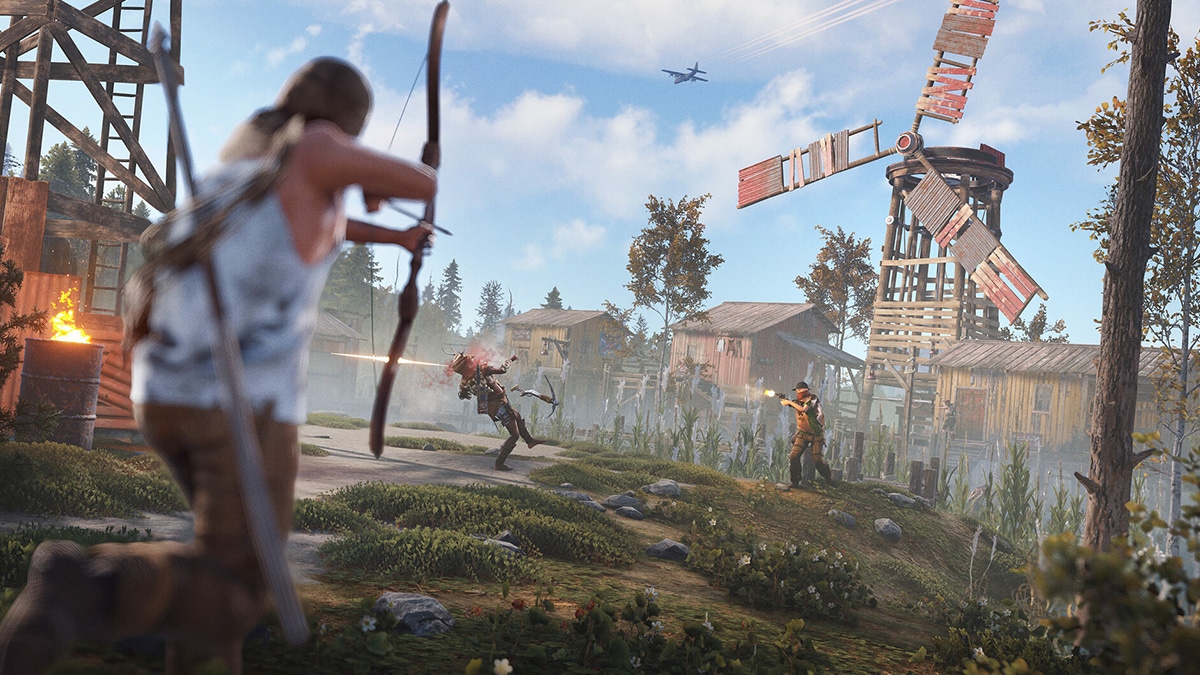Rust creator tells Unity to "get fucked" as developers left seething by new install fee
Unity's new Runtime Fee has invoked the wrath of developers across the industry.

An increasing number of developers are outlining plans to kick Unity to the curb as soon as possible after the engine maker announced plans to introduce a new Runtime Fee in January 2024 that will see creators charged per install after certain thresholds have been met.
In a strongly worded response to the news, Garry's Mod and Rust developer Garry Newman told Unity to "get fucked" and said the move has left him "furious."
Newman said the fee itself wouldn't be a huge issue if you assumed Unity was capable of ironing out all the creases and implementing a flawless system that could track relevant downloads. For them, the real kicker is that developers weren't warned or consulted before Unity decided to shift the goalposts.
"It hurts because we didn't agree to this. We used the engine because you pay up front and then ship your product. We weren't told this was going to happen. We weren't warned. We weren't consulted," explained the Facepunch Studios founder. "We have spent 10 years making Rust on Unity's engine. We've paid them every year. And now they changed the rules."
Newman claimed the move shows that Unity cannot be trusted as a partner, and described the firm as "the worst company to be in charge of the Unity Engine."
"It's our fault. All of our faults. We sleepwalked into it. We had a ton of warnings," they added. "We should have been pressing the eject button when Unity IPO'd in 2020. Every single thing they've done since then has been the exact opposite of what was good for the engine. We had 10 years to make our own engine and never did. I'm sure a lot of game companies are feeling the same today.
"Let's not make the same mistake again, Rust 2 definitely won't be a Unity game."
Rust dev claims Unity is "the worst company to be in charge of the Unity Engine"
Newman isn't the first notable developer to push back against the engine maker. Although Unity has attempted to clarify and tweak the policy surrounding its new fee to address concerns about how it will affect studios with titles on services like Xbox Game Pass, the potential impact on fundraising campaigns, and the threat of "install-bombing"—it's becoming increasingly apparent the company's reputation has taken a critical hit.
Earlier today, Totally Accurate Battlefield Simulator developer Landfall Games said it would "love to stick with the engine" it has been using for the past decade, but doesn't see how that's viable given "there is no way to know what kind of retroactive business model they might throw at us in the future."
"They are making this change without any form of opt-in or consent from developers and retroactively applying this new rule to games developed and released years ago," it wrote in a post on X. "This goes against their previous statements and is a huge breach of trust."
There's currently uncertainty surrounding how fees will be applied retroactively, but at the time of writing, an FAQ on the Unity forum explains that "assuming the game is eligible and distributing the Unity Runtime, then runtime fees will apply. We look at a game's lifetime installs to determine eligibility for the runtime fee. Then we bill the runtime fee based on all new installs that occur after January 1, 2024."
It's worth noting that FAQ also states that reinstalls and downloads on the same device will result in separate charges, but Unity told Axios it has amended that specific policy, so developers will only be charged for an initial install.
Among Us developer Innersloth and others threaten to leave Unity behind
The waters, then, remain muddy. Unity hasn't got a grip on its messaging, leaving developers confused and deeply frustrated. Other studios, including Among Us developer Innersloth, have also indicated they might abandon Unity if the company doesn't relent.
In a statement posted on X, Innersloth co-founder and programmer Forest Willard said that irrespective of whether the fees are retroactive, the number of downloads pulled in by Among Us each month means it would make more sense for the company to "just hire two whole people to port Among Us away from Unity instead of them taxing us for zero added value."
Elsewhere, Cult of the Lamb developer Massive Monster implored people to buy the title before the studio deletes it on January 1, 2024, when the Runtime Fee is rolled out. Indie developer Aggro Crab will also consider bidding farewell to Unity if the company doesn't reverse course.
"If these changes aren't rolled back, we'll be heavily considering abandoning our wealth of Unity expertise we've accumulated over the years and starting from scratch in a new engine. Which is something we'd rather not do," reads a statement posted by Aggro Crab on X.
Speaking to 404 Media about the policy, Immortality developer Sam Barlow lamented the gradual "enshittification" of Unity and noted there's often a "key disconnect" between installs and revenue.
“[The policy] seems born of a focus on games-as-service and a live ops process of maximizing cost per install. That's not the world I make games for—a world where premium indie games are more and more looking to subscription to break even, there's a key disconnect between installs and actual revenue," he added.
Right now, it's clear the anger runs deep. Unity appears unable to effectively communicate with developers desperately seeking clarity about the changing shape of its new policy, but yesterday told Axios it has "regrouped" to discuss the concerns being raised.
About the Author(s)
You May Also Like







.jpeg?width=700&auto=webp&quality=80&disable=upscale)








